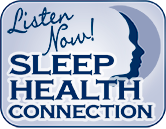If you are a snoring sufferer, do you have obstructive sleep apnea?
During snoring muscles relax in the back of the throat narrowing the airway to a smaller opening. As you breathe in your sleep, air is forced through this smaller opening causing vibrations known as snoring.
Although snoring may be harmless (benign snoring), it can also be a sign of a more serious medical condition which progresses from Upper Airway Resistance Syndrome (UARS) to Obstructive Sleep Apnea (OSA).
OBSTRUCTIVE SLEEP APNEA (OSA): During an apnea event
- The muscles in the throat relax and the tongue is sucked against the throat blocking the airway.
- The entire upper airway is blocked causing air flow to stop.
- Air (and oxygen) cannot flow into the lungs.
- When the oxygen level in the brain becomes low enough, the sleeper partially awakens, the obstruction in the throat clears, and the flow of air starts again – usually with a loud gasp or snort.
- People with untreated apnea are generally not aware of the awakenings but only of being sleepy during the day.
- Loud snoring, mixed with periods of silence (apnea), is typical but is not always present, especially in children.
Obstructive sleep apnea is a life threatening and life altering condition that causes a person to stop breathing repeatedly during sleep. The oxygen deprivation that results can trigger severe health problems. The restless sleep that also results from OSA affects the quality of life of individuals. The bed partner’s sleep can also be disrupted by his or her partner’s snoring, pauses in breathing and restless sleep.
Visit our website to learn more about the Health Consequences of untreated sleep apnea!







(630) 369-5508